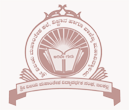Department of Botany
S V M Arts Science and Commerce College Ilkal
Department of Botany
The department has a well-equipped laboratory of six 80 ft.² area there are 25 compound microscopes,10 dissecting microscope, one research binocularly microscope, digital balance, persimmon models of classwork materials.
The department has botanical Garden situated at the entrance of the college which is of about 3000 m² in opposite direction, that consists of medicinal plants required for the regular practical.
Courses offered
OUR FACULTY
DEPARTMENTAL ACTIVITIES
- Program Outcomes:PO1: Skill development for the proper description using botanical terms, identification, namingand classification of life forms especially plants and microbes.PO2: Acquisition of knowledge on structure, life cycle and life processes that exist among plantand microbial diversity through certain model organism studies.PO3: Understanding of various interactions that exist among plants and microbes; to develop thecuriosity on the dynamicity of nature.PO4: Understanding of the major elements of variation that exist in the living world throughcomparative morphological and anatomical study.PO5: Ability to explain the diversity and evolution based on the empirical evidences inmorphology, anatomy, embryology, physiology, biochemistry, molecular biology and life history.PO6: Skill development for the collection, preservation and recording of information afterobservation and analysis- from simple illustration to molecular database development.PO7: Making aware of the scientific and technological advancements- Information andCommunication, Biotechnology and Molecular Biology for further learning and research in allbranches of Botany..PO8: Internalization of the concept of conservation and evolution through the channel of spirit
of inquiry.
PO 9: To enable the graduates to prepare for national as well as international level competitive
examinations like UGC-CSIR, UPSC, KPSC etc.
PO10: To enable the students for practicing the best teaching pedagogy as a biology teacher
including the latest digital modules.
PO 11: The graduates should be knowledgeable and competent enough to appropriately deliver
on aspects of global importance like climate change, SDGs, green technologies etc at the right
opportunity.
PO 12: The graduate should be able to demonstrate sufficient proficiency in the hands-on
experimental techniques for their area of specialization within biology during research and in theprofessional career.
- The framework of curriculum for the Bachelor’s program in Botany aims to transform the course content and pedagogy to provide a multidisciplinary, student-centric, and outcome-based, holistic education to the next generation of students. Aside from structuring the curriculum to be more in-depth, focused, and comprehensive with significant skill-set for all exit levels; keeping in mind the job prospects; the emphasis has been to maintain academic coherence and continuum throughout the program of study and help build a strong footing in the subject, thereby ensuring a seamless transition into their careers.Special attention is given to eliminate redundancy, discourage rote learning, and espouse a problem-solving, critical thinking, and inquisitive mindset among learners. The curriculum embraces the philosophy that science is best learned through experiential learning,not limited to the confines of a classroom but rather through hands-on training, projects, field studies, industrial visits, and internships. This updated syllabus, with modern technology, helps students stay informed on the leading- edge developments in plant sciences and promotes curiosity, innovation, and a passion for research, that will serve them well in their journey into scientific adventure and discovery beyond graduation. The goal is to equip students with holistic knowledge, competencies, professional skills, and a strong positive mindset that they can leverage while navigating the current stiff challenges of the job market.
Botany laboratory
The department has a well-equipped laboratory of six 80 ft.² area there are 25 compound microscopes,10 dissecting microscope, one research binocularly microscope, digital balance, persimmon models of classwork materials.
The department has botanical Garden situated at the entrance of the college which is of about 3000 m² in opposite direction, that consists of medicinal plants required for the regular practical.
Academic resources
2242 text book and reference books of botany are present in the library. Journal – Journal of Genetics and E-resources – INFLIBNET ( N-List ) . Department of botany has maintained its own department library with 40 books for reference of the students in their practical and theory purpose.
Study materials are provided
PPT and Useful videos are sent to students through WhatsApp group.
